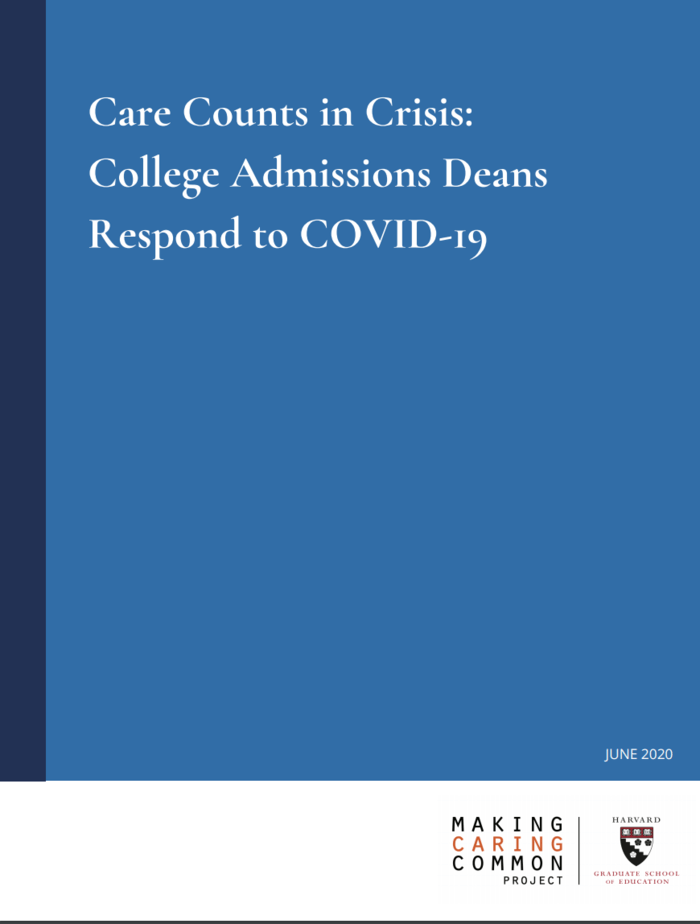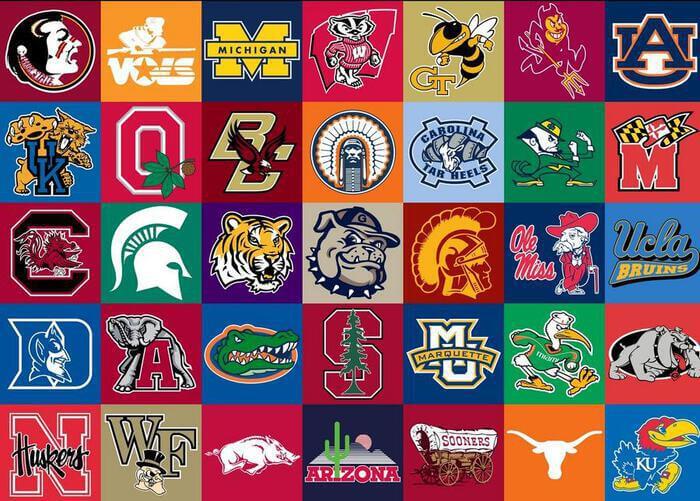
Over 300 Admissions Deans published an open letter in June detailing the most significant ways that they see college admissions changing because of COVID-19.
Here is a brief summary of 5 key takeaways.
1. Increased Community Service Expectations
It sounds like volunteer work will be more highly valued/expected this cycle for students who are in a position to help others.
Here is the exact wording that the admissions officers use in their letter:
We value contributions to one’s communities for those who are in a position to provide these contributions.
We recognize that while many students are not in this position because of stresses and demands, other students are looking for opportunities to be engaged and make a difference.
This pandemic has created a huge array of needs, whether for tutoring, contact tracing, support for senior citizens, or assistance with food delivery. We view responding to these needs as one valuable way that students can spend their time during this pandemic.
We also value forms of contribution that are unrelated to this pandemic, such as working to register voters, protect the environment, combat racial injustice and inequities, or stop online harassment among peers.
2. Decreased Extracurricular/Summer Activities Expectations
Here is what the admissions deans have to say about extracurricular activities affected by COVID-19:
No student will be disadvantaged for not engaging in extracurricular activities during this time.
We also understand that many plans for summer have been impacted by this pandemic, and students will not be disadvantaged for lost possibilities for involvement. Potential internship opportunities, summer jobs, camp experiences, classes, and other types of meaningful engagement have been cancelled or altered.
3. Increased Emphasis on “Family Contributions”
Contributing to your family, whether that is working a job or caring for a relative, also counts as a form of service.
If you have spent a significant amount of time providing for your family, then you should make sure this comes across in your application and doesn’t get overlooked by your admissions reader.
Here’s what the admissions deans have to say:
Far too often there is a misperception that high-profile, brief forms of service tend to “count” in admissions while family contributions—which are often deeper and more time-consuming and demanding—do not.
Many students may be supervising younger siblings, for example, or caring for sick relatives or working to provide family income, and we recognize that these responsibilities may have increased during these times.
We view substantial family contributions as very important, and we encourage students to report them in their applications. It will only positively impact the review of their application.
4. SAT/ACT Test Optional
Many schools have gone ACT/SAT optional. Here is the official statement from Princeton’s Admissions Office:
Though standardized tests results will not be required for the 2020-21 cycle for an application to be considered complete, we still value these results and will evaluate them within the context of our holistic review. However, if you do not submit standardized testing, you will not be at a disadvantage.
And here is MIT’s :
Updated requirements. We will not require either the SAT or the ACT from first-year or transfer applicants applying this cycle…Students who do not submit SAT/ACT scores will not have any negative inferences be drawn from their absence.
5. New COVID-19 Essay on the Common App
The Common App added an optional 250-word prompt for students to use to shed light on how the pandemic has affected them.
Because this prompt is separate from the Personal Statement, it is strongly suggested that your primary Personal Statement essay not focus on the pandemic, something that we stress to the students we mentor while helping them develop strong Personal Statements.



